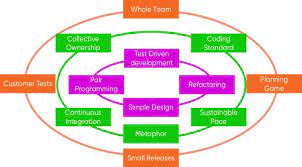Harnessing the Power of JavaScript On for Dynamic Web Experiences
The Power of JavaScript On: Enhancing Web Interactivity
JavaScript is a versatile programming language that has revolutionized the way we interact with websites. With its ability to add dynamic behavior to web pages, JavaScript plays a crucial role in creating engaging and interactive user experiences.
One of the key features of JavaScript is its event handling capability. By using event listeners, developers can respond to user actions such as clicks, mouse movements, and keyboard inputs. This allows for the creation of responsive web applications that react to user interactions in real-time.
JavaScript also enables the manipulation of HTML elements on a webpage. Through the Document Object Model (DOM), developers can access and modify the structure and content of a webpage dynamically. This opens up endless possibilities for creating visually appealing and interactive web interfaces.
Furthermore, JavaScript On facilitates asynchronous communication with servers through technologies like AJAX (Asynchronous JavaScript and XML). This enables web pages to fetch data from servers without having to reload the entire page, resulting in faster and more seamless user experiences.
With the rise of Single Page Applications (SPAs) and modern web development frameworks like React, Angular, and Vue.js, JavaScript has become an indispensable tool for building rich, interactive web applications. Its versatility and ease of use make it a favorite among developers for front-end development.
In conclusion, JavaScript On is not just a programming language; it is a powerful tool that empowers developers to create dynamic and engaging web experiences. By harnessing the capabilities of JavaScript, developers can bring their creative visions to life on the web.
Understanding JavaScript: Key Concepts and FAQs for Web Development
- What is JavaScript and how is it used in web development?
- What are the key features of JavaScript that make it essential for creating interactive web pages?
- How does JavaScript handle events on a webpage?
- What is the Document Object Model (DOM) in relation to JavaScript?
- How can JavaScript be used to manipulate HTML elements dynamically?
- What role does AJAX play in enhancing user experiences with JavaScript?
- Which modern web development frameworks utilize JavaScript for building interactive applications?
- How can developers optimize website performance using JavaScript?
What is JavaScript and how is it used in web development?
JavaScript is a versatile programming language commonly used in web development to add interactivity and dynamic behavior to websites. It runs on the client-side, meaning it is executed by the user’s browser, allowing for real-time responses to user actions such as clicks, form submissions, and animations. JavaScript is used to manipulate the Document Object Model (DOM) of a webpage, enabling developers to create interactive elements, update content dynamically, and enhance user experience. Additionally, JavaScript facilitates asynchronous communication with servers through AJAX, enabling web pages to fetch and display data without requiring a full page reload. Overall, JavaScript plays a crucial role in modern web development by making websites more engaging, responsive, and user-friendly.
What are the key features of JavaScript that make it essential for creating interactive web pages?
JavaScript is essential for creating interactive web pages due to its key features that enable dynamic behavior and enhanced user experiences. One crucial feature is its event handling capability, allowing developers to respond to user actions in real-time, such as clicks and mouse movements. Additionally, JavaScript empowers developers to manipulate HTML elements on a webpage through the Document Object Model (DOM), enabling the creation of visually appealing and interactive interfaces. Furthermore, JavaScript facilitates asynchronous communication with servers using technologies like AJAX, enhancing the speed and responsiveness of web applications. Overall, these features make JavaScript a fundamental tool for building engaging and interactive web experiences.
How does JavaScript handle events on a webpage?
JavaScript handles events on a webpage by using event listeners. Event listeners are functions that wait for a specific action, such as a click or keypress, to occur on an HTML element. When the event is triggered, the associated event listener executes the specified code or function, allowing developers to respond dynamically to user interactions. This mechanism enables JavaScript to enhance web interactivity by enabling developers to create responsive and engaging user experiences through event-driven programming.
What is the Document Object Model (DOM) in relation to JavaScript?
The Document Object Model (DOM) is a crucial concept in relation to JavaScript as it serves as the interface that allows JavaScript to interact with the elements of a webpage. The DOM represents the structure of an HTML document as a tree-like structure where each element, attribute, and text node is considered a part of the document. By manipulating the DOM using JavaScript, developers can dynamically update and modify the content, structure, and style of a webpage, enabling the creation of interactive and responsive web applications. Understanding how the DOM works is essential for developers looking to leverage JavaScript’s full potential in enhancing user experiences on the web.
How can JavaScript be used to manipulate HTML elements dynamically?
JavaScript can be used to manipulate HTML elements dynamically by leveraging the Document Object Model (DOM). Through the DOM, developers can access and modify the structure, content, and styling of HTML elements on a webpage in real-time. By using JavaScript methods and properties to interact with DOM elements, such as getElementById(), querySelector(), innerHTML, style, and more, developers can create dynamic and interactive web experiences that respond to user actions and events. This flexibility in manipulating HTML elements dynamically with JavaScript is key to building modern and engaging web applications.
What role does AJAX play in enhancing user experiences with JavaScript?
AJAX, which stands for Asynchronous JavaScript and XML, plays a crucial role in enhancing user experiences with JavaScript by enabling web pages to communicate with servers asynchronously. This means that data can be fetched from the server in the background without requiring the entire page to reload. By leveraging AJAX, web applications can provide users with faster and more responsive interactions, leading to a seamless browsing experience. This technology allows for dynamic content updates and real-time data retrieval, ultimately improving the overall interactivity and performance of websites powered by JavaScript.
Which modern web development frameworks utilize JavaScript for building interactive applications?
Several modern web development frameworks leverage JavaScript to build interactive applications. Examples of popular frameworks include React, Angular, and Vue.js. These frameworks provide developers with tools and libraries that streamline the process of creating dynamic user interfaces and responsive web applications. By utilizing JavaScript at their core, these frameworks enable developers to enhance user experience, improve performance, and create visually appealing and interactive websites.
How can developers optimize website performance using JavaScript?
Developers can optimize website performance using JavaScript by implementing best practices such as minimizing the use of synchronous code, reducing the number of HTTP requests, and optimizing asset loading. By utilizing techniques like code splitting to load only necessary scripts, lazy loading images and resources, and caching data where possible, developers can improve website speed and efficiency. Additionally, optimizing algorithms and avoiding unnecessary DOM manipulations can contribute to a smoother user experience. Regularly monitoring performance metrics and using tools like browser developer tools can help identify areas for improvement and ensure that JavaScript does not hinder website performance.










